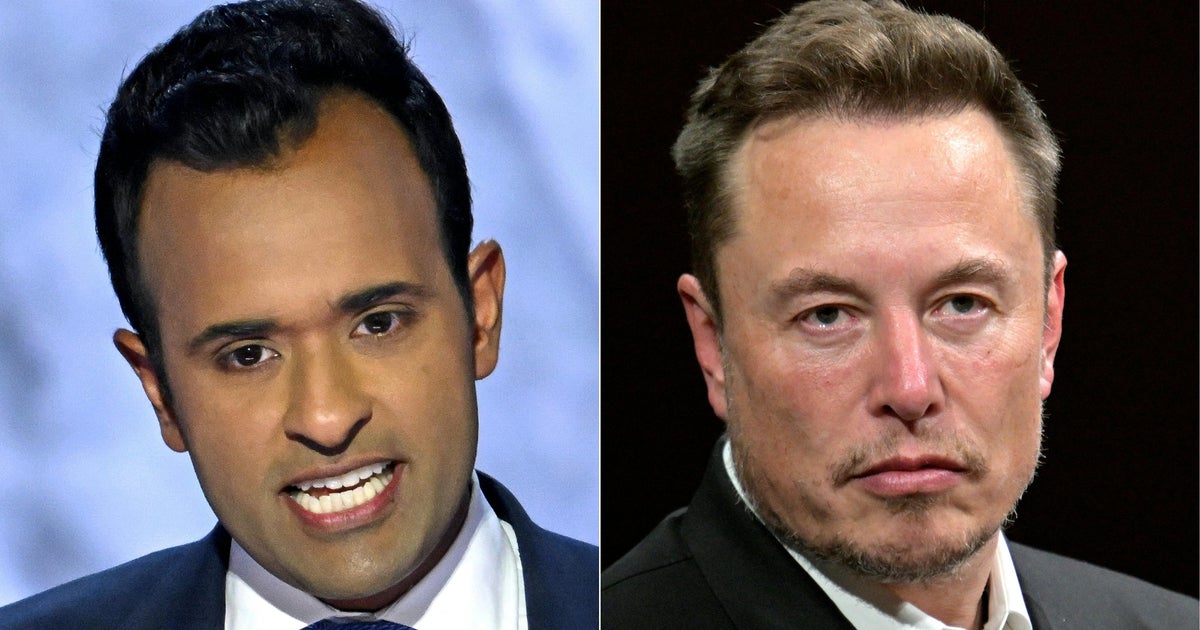Fauci says he doesn't like "to be pitted against the president" after multiple attacks from the White House
In response to the multiple attacks on his credibility he's recently faced from the White House, Dr. Anthony Fauci said in an interview published Wednesday that he doesn't like "to be pitted against the president."
"I don't like the conflict. I'm an apolitical person. I don't like to be pitted against the president," Fauci told Norah O'Donnell, anchor and managing editor of "CBS Evening News," in an interview for InStyle magazine. "It's pretty tough walking a tightrope while trying to get your message out and people are trying to pit you against the president. It's very stressful."
Fauci's comments come after White House trade adviser Peter Navarro published a scathing op-ed claiming Fauci "has been wrong about everything I have interacted with him on." Although President Trump distanced himself from the op-ed, he told CBS News' Catherine Herridge on Tuesday that Fauci has "made mistakes."
Fauci added that the national scrutiny that's come with his role has been difficult for his three daughters.
"This real and perceived built-up conflict between me and the president makes them very nervous," he said. "They don't like that. They got upset by the death threats and the harassment that I received early on. So it's been tough on them; this has been a tough deal for them."
Fauci described his relationship with Mr. Trump as "complicated," and said he believes he now sees the president less because the "tenor of what goes on in the White House" has shifted more toward economic issues.
But he spoke critically about reopening the country, telling O'Donnell that "we've got to pause in the opening and maybe even take a step back in our phases, depending upon what state you happen to be in."
"As we try to proceed, we need to really take seriously the issue of wearing masks all the time and not congregating in bars," Fauci added. "I think we can stop that by just closing them, because they are certainly an important mechanism of this spread. Keep distances, wash hands, avoid crowds, wear a mask ... I think if we diligently do those things, we can turn this around."
Mr. Trump has taken a different stance. In an interview with Greta Van Susteren, he said he disagreed with Fauci's assessment that the nation is still "knee deep" in the pandemic.
"I think we are in a good place," Mr. Trump told Van Susteren. "I disagree with him. You know, Dr. Fauci said 'don't wear masks,' and now he says 'wear them.'"
Fauci defended his earlier advice to not wear masks — noting that at the time, there was a shortage of masks for health care workers and it wasn't yet clear asymptomatic carriers could spread the virus.
"I don't regret anything I said then because in the context of the time in which I said it, it was correct," he told O'Donnell.
Fauci's wife, bioethicist Dr. Christine Grady, also weighed in on the mask debate. "From an ethical perspective there is always this tension between what you ask people to do that feels like a restriction of their liberty and what is required for public health," she added. "And in this case, it seems like a slam dunk. It's not restricting liberty much, and it's very helpful for public health."
If the country doesn't regain control over the outbreak, it's possible that we could see 100,000 new infections a day, Fauci said — although he noted that's unlikely.
"I don't think we will. I hope not. It is conceivable that if we don't get good control over the current outbreak and we keep spreading into other regions of the country, we could reach 100,000," he said. "If anything, I think you have to at least leave that possibility on the table to get people to realize how important it is for us to get control of this. Remember, we went from 20,000 cases a day to 40,000, and then we went up to 60,000. The last thing in the world I want to see is for us to reach 100,000 per day."
When asked how long he would stay on the coronavirus task force, Fauci said he didn't plan on leaving any time soon.
"I see myself in that role as long as I feel that I'm being useful, and I'm valued in it, and the White House wants me," he said. "If any of the above change, then I would step down."
He also said he planned to stay at the NIH, a role that he said he cannot be fired from by the president.
"I don't see any termination within the near future because I judge [my career] by my energy and my effectiveness. And right now, with all due modesty, I think I'm pretty effective. I certainly am energetic. And I think everybody thinks I'm doing more than an outstanding job," he said. "I have a wife with incredibly good judgment, who will probably give me the signal when it's time to step down. But I don't think we're anywhere near that right now."
The Dr. Fauci interview is available now on InStyle.com and will be featured in their upcoming September issue hitting newsstands on August 21.





